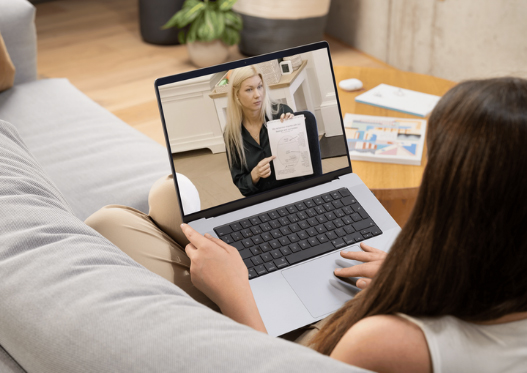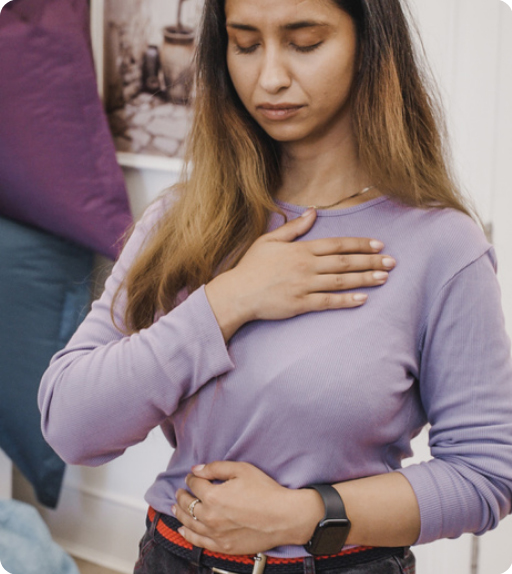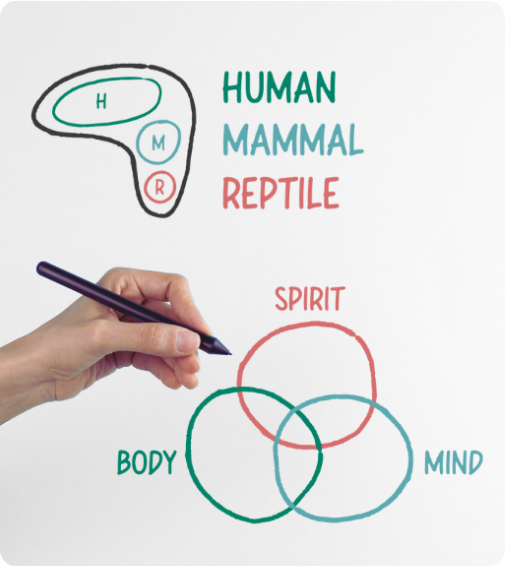Trauma Therapy Online Groups for Recovery and Growth
Join a Supportive Online Therapy Community From the Comfort of Your Home


Trauma is created in moments of overwhelm, powerlessness, and fear. Healing begins when we create the safety to be held, seen, and free again.
Explore Our Online Groups
Each group has a maximum number of participants, listed under its description below. Once a group is full, you can join a waiting list and will be notified when a space becomes available. You may book a taster session (regular fees apply) before committing. Once enrolled, we ask for regular attendance and commitment to the group process.

Creative Expression for Wellbeing & Healing
Explore your inner world through art, movement, and imagination. This group helps you express emotions safely, regulate your nervous system, and experience creative connection that supports post-traumatic growth.

Reclaiming the Body
Reconnect with your body through gentle, trauma-informed somatic practices. You’ll learn to release tension, restore balance, and find calm and aliveness through embodied awareness.

Trauma Recovery Psychoeducation Group
Learn the science of trauma and recovery through teaching, discussion, and reflection. Topics include the Polyvagal Theory, self-regulation, parts work, attachment, and boundaries.
Creative Expression for
Wellbeing & Healing
Wednesdays 5:00–6:30 pm (£40) Maximum 15 participants

Who this group is for
What This Online Therapy for Trauma Offers
What to bring
Format of Our Online Trauma Therapy Sessions
- 15-minute check-in
- 45 minutes of creative making
- 30 minutes of group sharing
Participants are asked to keep their cameras on to help create a safe and connected environment.

What you’ll gain
This group can help you:
- Develop confidence in using creativity as a form of self-inquiry
- Access deeper insight beyond logic and language
- Reduce stress and feel more grounded
- Lessen feelings of shame and isolation
- Strengthen authenticity and self-esteem
Reclaiming the Body with Support from Trauma Therapists in Online Therapy
Wednesdays, 7:00 pm – 8:30 pm (£40) Maximum 15 participants

Who this group is for
What This Trauma Therapy Online Session Offers
What to bring
Format
- 15-minute check-in
- 45 minutes of creative making
- 30 minutes of group sharing
Participants are asked to keep their cameras on to help create a safe and connected environment.

What you’ll gain
This group can help you:
- Develop confidence in using creativity as a form of self-inquiry
- Access deeper insight beyond logic and language
- Reduce stress and feel more grounded
- Lessen feelings of shame and isolation
- Strengthen authenticity and self-esteem
Trauma Recovery:
Embodied Psychoeducation Group
Thursdays, 12:00 pm – 1:00 pm (£30) Maximum 25 participants

Who this group is for
What the group offers
You’ll explore key trauma recovery frameworks, including:
- Polyvagal Theory and the Autonomic Nervous System
- Self-regulation for hyper- and hypo-arousal
- Parts models and dissociation
- Attachment and relational recovery
- Boundaries, co-dependency, and shame
Sessions include teaching, discussion, reflective exercises, and occasional embodied practices. Handouts are provided when relevant.
What to bring
Format
- 15-minute check-in
- 55-minute discussion
- 10-minute break
- 20-minute integration
Participants are asked to keep their cameras on to maintain a supportive group space.

What you’ll gain
This group will help you:
- Understand how trauma shapes your nervous system and relationships
- Learn tools to regulate your body and emotions
- Explore how survival patterns can shift into healthier adaptations
- Build confidence and connection within a trauma-informed community
Ready to Join a Group for Trauma Treatment and Healing?
If you’re ready to take the next step in your healing journey, we invite you to join our trauma therapy online community. Before starting, you’ll be invited to a free 15-minute online Zoom appointment with one of our qualified trauma therapists to ensure the right fit for your needs.
You’ll also be asked to sign a group contract confirming your agreement with the group boundaries.
Whether you’re exploring trauma treatment for the first time or continuing psychotherapy for deeper healing, our trauma specialists are here to guide you with care and compassion.
For questions, taster sessions, or registration, please contact us.
